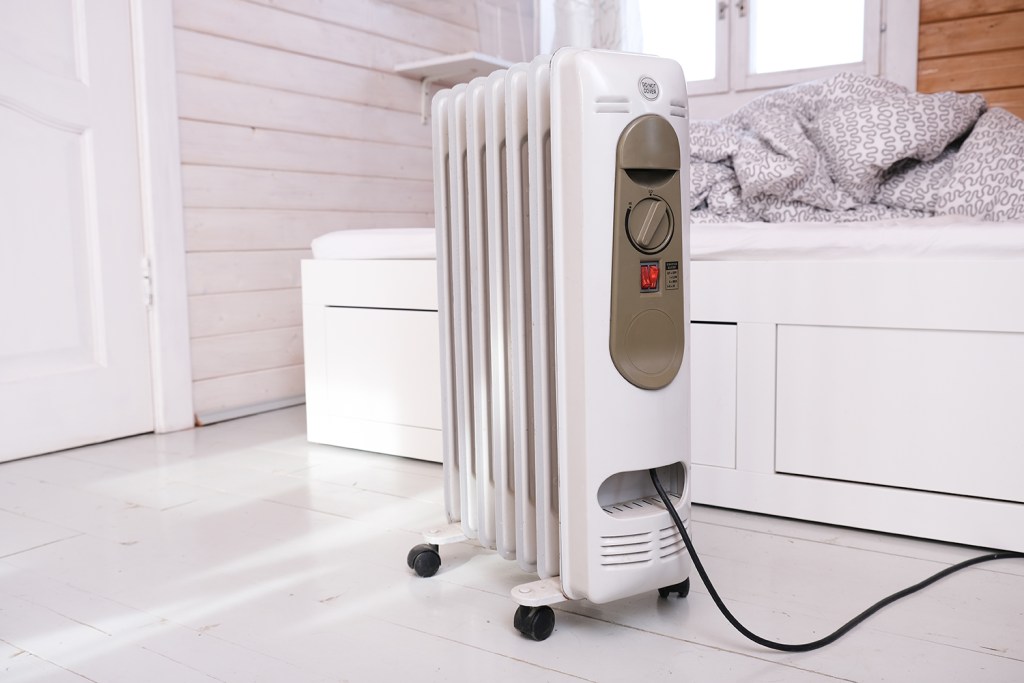
When it’s practically freezing outside and your apartment or home doesn’t have central heating, it can be more than uncomfortable. You may try layering up the blankets on the bed or drawing the heavy curtains across the windows to deter chilly breezes, but there are some nights where even that isn’t enough to trap the limited heat available. Even if you have built-in heating, the vents may not reach certain spots in your home, and in this case, a space heater is the best solution.
Still, leaving a space heater on overnight can be worrisome. What happens if it falls over during the night? What sorts of things should you consider before leaving it on overnight? If you’re asking yourself, “Is it safe to sleep with a heater on?” don’t fret. We’ve got the answer here.
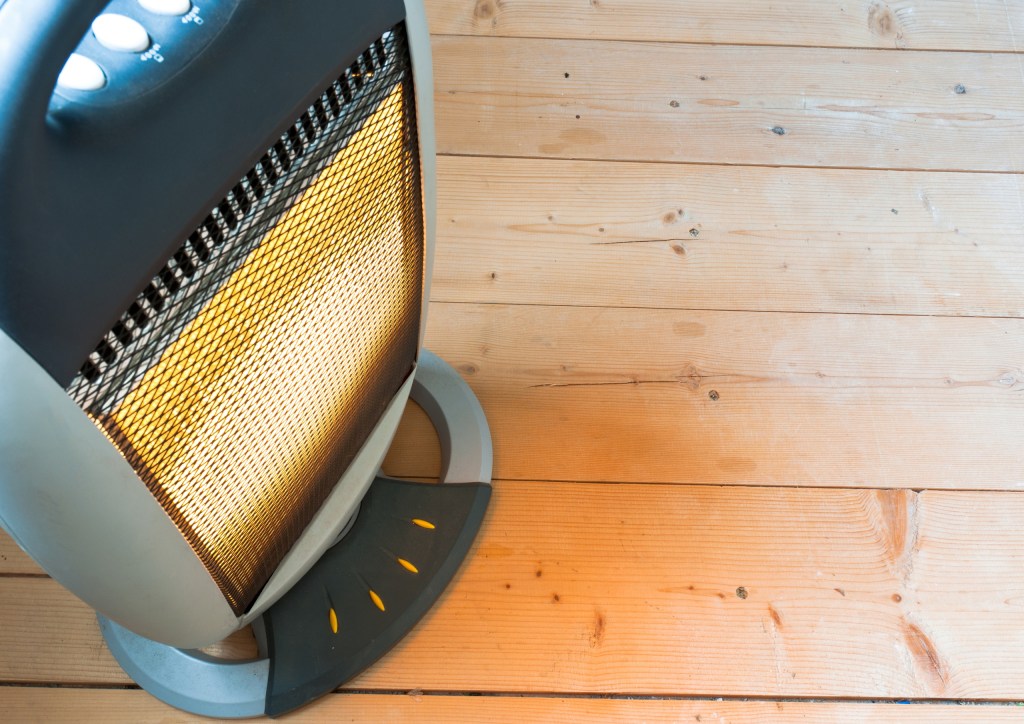
The short answer: Usually not
Unfortunately, it’s typically not safe to leave space heaters on unattended or overnight while you’re asleep. They get extremely hot to the touch and could potentially start a fire if they come in contact with something or if there is an electrical issue.
However, there are some measures you can take to make leaving a space heater on overnight safer if you absolutely need it to stay warm. The type of space heater, placement of the heater, settings, where it’s plugged in, and other factors all impact the safety of sleeping with it on. Here are some tips for safely using space heaters.
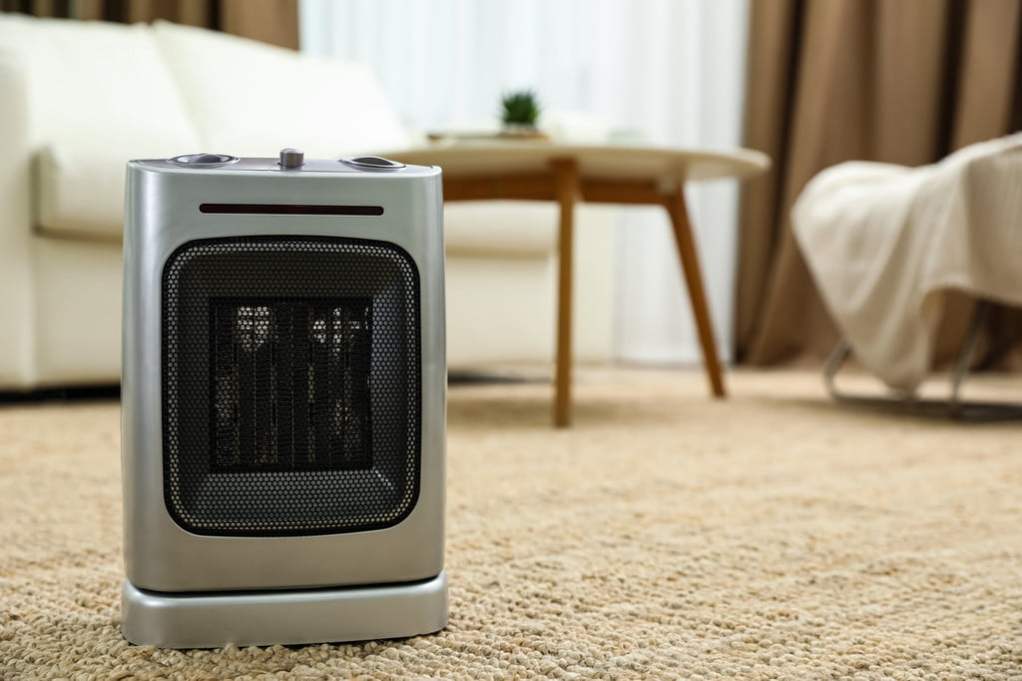
Types of space heaters
The answer to your Google search, “Can you sleep with a space heater on?” depends largely on what type of heater you have. Three main types are radiator, convention, and fan-forced.
Convection heaters warm up the air in your room using oil, electricity, or water. On the other hand, radiators quickly help warm you and the surrounding area through infrared radiation. These are considered some of the safest heaters. Fan-forced heaters are perhaps the most portable type of convection heater. They’re often used for heating up a work area or warming up your feet under a desk. These tend to generate noise, but may be less hazardous than larger heaters.
Other types include oil- or gas-fueled appliances commonly found in outdoor restaurants or patios. These are best for outdoor use, as they emit exhaust. If you do use one inside, crack a window open for proper ventilation.
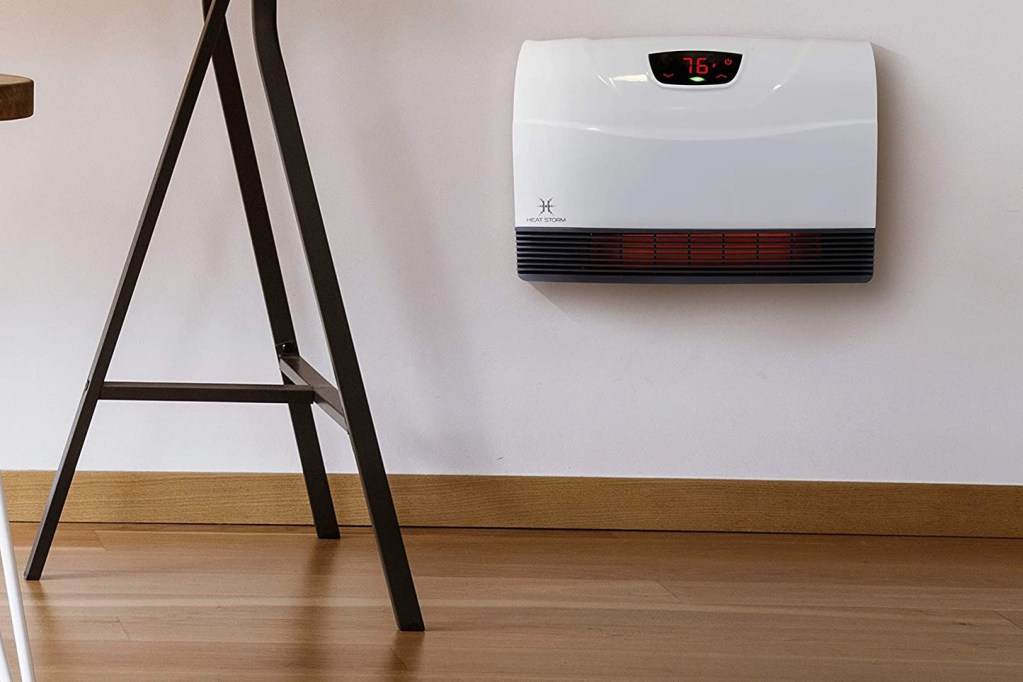
Where is your heater located?
Where your heater sits is one of the first things to think about when it comes to space heater safety. Most heaters require a diameter of 3 feet or more with no flammable objects in the way, says The DIY Network. This is why many heater-caused home fires occur — materials are too close to the heater itself. With that said, keep clothes, blankets, papers, rugs, and other materials that may catch fire away from the heater. Furthermore, don’t set the heater on the carpet or on furniture, like a table or dresser.

Does it offer automatic shutoff or cooling settings?
Most electric space heaters provide top-of-the-line features like temperature controls and programmable heating times. For fan heaters, you may even choose oscillation movements to distribute heat evenly in your space.
More important features include automatic shutoff when the heater overheats or tips over. If your heater doesn’t have an automatic shutoff feature, it may be a wise idea to turn it off before sleep in case it accidentally falls over. Additionally, always turn off the heater when you’re not in the room to supervise it. A good practice is to pore over the manufacturer’s warnings and peruse the instruction manual for information specific to your heater.
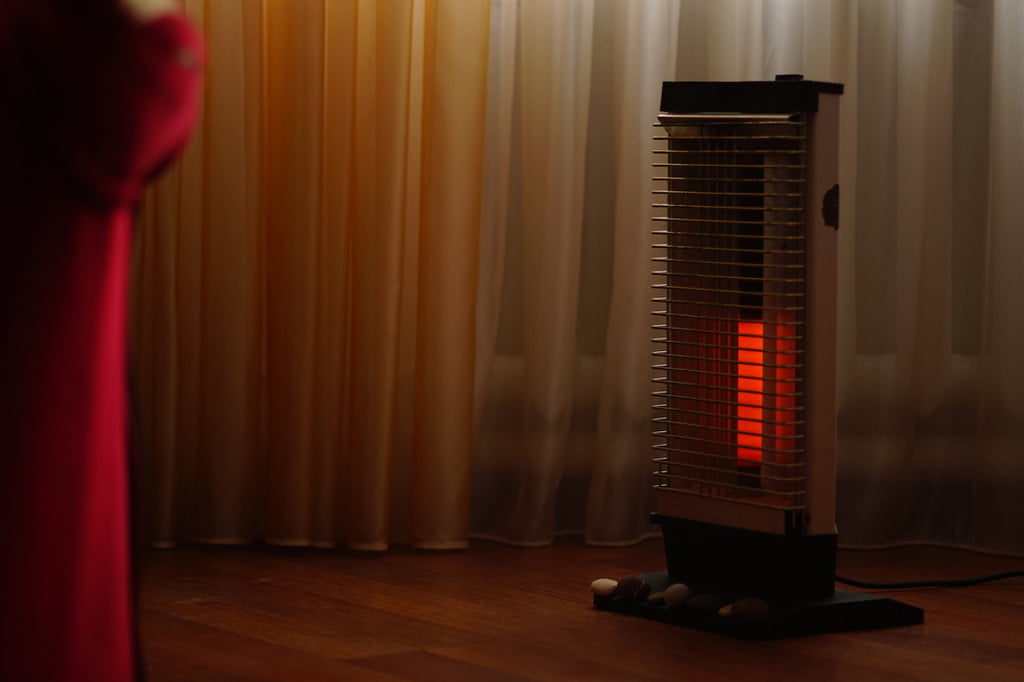
Do you check it regularly?
Since you likely don’t use your space heater 12 months out of the year, you need to inspect it, especially when you first bring it out for the cold season. Check out the cord and ensure there’s no damage. After having it on for a short time (before you go to sleep), make sure the cord isn’t hot to the touch. While using the space heater for the few months that you do, ensure you do these checks regularly.
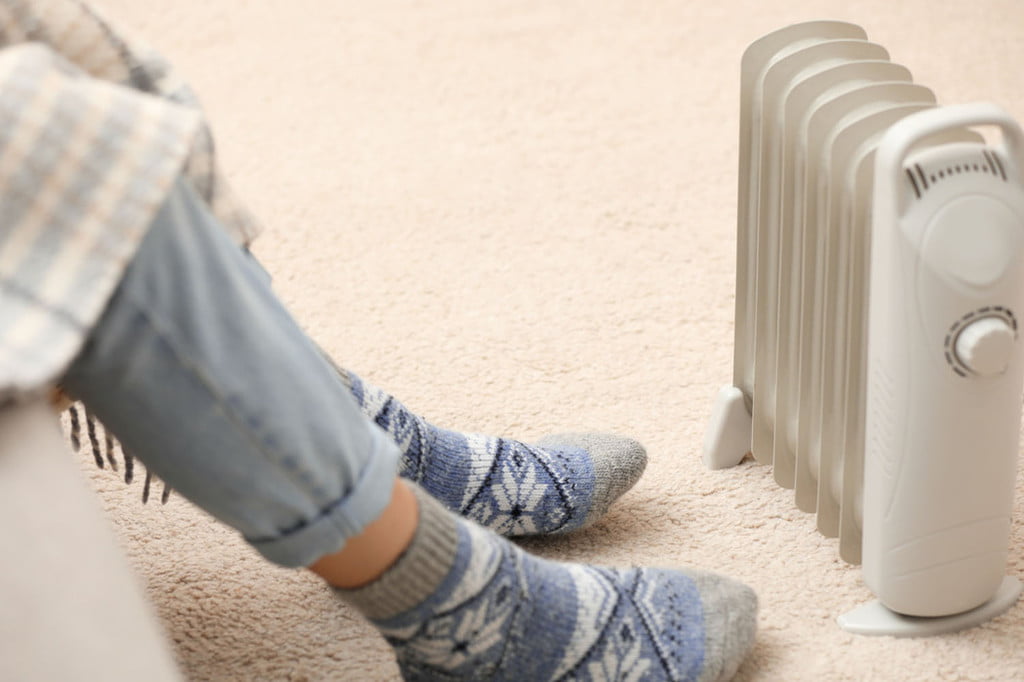
Is it plugged into the wall or an outlet strip?
One common — but extremely important — piece of advice you’ll hear is to never plug your space heater into an extension cord or outlet strip. These tools may not be able to handle your space heater’s power demand, which could lead to a broken heater or even cause a fire in your wall due to power failure or faults, states Bob Vila. This sounds terrifying — and it is! — but there’s a straightforward precaution we can all take. Remember: Plug into the wall, not the strip!
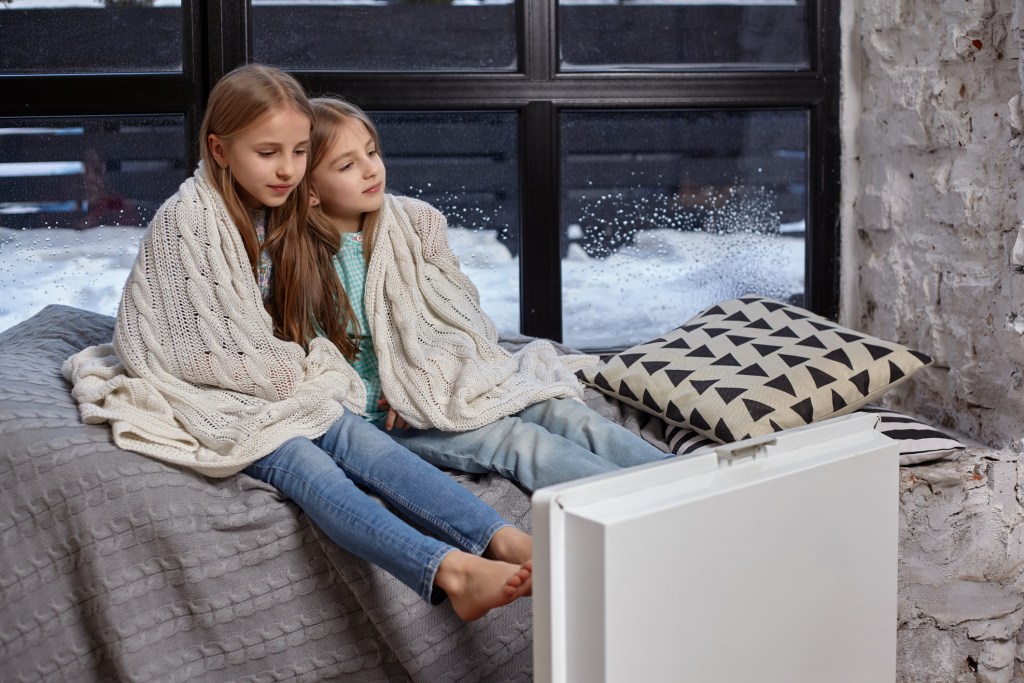
Do you have children or pets?
Lastly, you might rethink leaving a space heater on as you rest if you have pets or children. Space heaters will feel hot to the touch, so if your child or pet has access to your room while you sleep, turning it off is even more mandatory. Moreover, if they trip on the heater, causing it to fall over (and not automatically turn off), a fire could break out.
If you’re in dire need of some warmth before or during sleep and you just have to use your heating system, our advice is to crank up the heater before bedtime, while you’re able to monitor the machine, and turn it off before sleep. Give enough time for the heater to cool down, or leave it somewhere kids or pets can’t get to it.
Yes, electric heaters with automatic shutoff features are generally safe even when accidentally knocked over or when they overheat. However, you can never be too safe, so keep your heater on only while you’re awake and alert.



